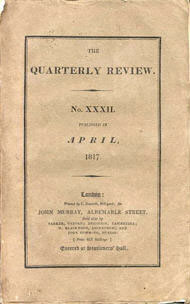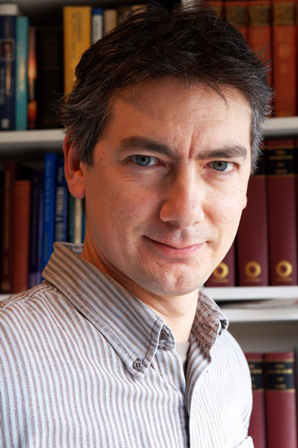Related Research Articles

John Keats was an English poet of the second generation of Romantic poets, along with Lord Byron and Percy Bysshe Shelley. His poems had been in publication for less than four years when he died of tuberculosis at the age of 25. They were indifferently received in his lifetime, but his fame grew rapidly after his death. By the end of the century, he was placed in the canon of English literature, strongly influencing many writers of the Pre-Raphaelite Brotherhood; the Encyclopædia Britannica of 1888 called one ode "one of the final masterpieces". Jorge Luis Borges named his first time reading Keats an experience he felt all his life. Keats had a style "heavily loaded with sensualities", notably in the series of odes. Typically of the Romantics, he accentuated extreme emotion through natural imagery. Today his poems and letters remain among the most popular and analysed in English literature – in particular "Ode to a Nightingale", "Ode on a Grecian Urn", "Sleep and Poetry" and the sonnet "On First Looking into Chapman's Homer".

Romanticism is an artistic and intellectual movement that originated in Europe towards the end of the 18th century. For most of the Western world, it was at its peak from approximately 1800 to 1850. Romanticism was characterized by its emphasis on emotion and individualism as well as glorification of the past and nature, preferring the medieval to the classical. Romanticism was partly a reaction to the Industrial Revolution, and the prevailing ideology of the Age of Enlightenment, especially the scientific rationalization of Nature. It was embodied most strongly in the visual arts, music, and literature; it also had a major impact on historiography, education, chess, social sciences, and the natural sciences. It had a significant and complex effect on politics: Romantic thinking influenced conservatism, liberalism, radicalism, and nationalism.

Romantic poetry is the poetry of the Romantic era, an artistic, literary, musical and intellectual movement that originated in Europe towards the end of the 18th century. It involved a reaction against prevailing Enlightenment ideas of the 18th century, and lasted approximately from 1800 to 1850. Romantic poets rebelled against the style of poetry from the eighteenth century which was based around epics, odes, satires, elegies, epistles and songs.

The Cenci. A Tragedy, in Five Acts (1820) is a verse drama in five acts by Percy Bysshe Shelley written in the summer of 1819, and inspired by a real Roman family, the House of Cenci. Shelley composed the play in Rome and at Villa Valsovano near Livorno, from May to August 5, 1819. The work was published by Charles and James Ollier in London in 1819. The Livorno edition was printed in Livorno, Italy by Shelley himself in a run of 250 copies. Shelley told Thomas Love Peacock that he arranged for the printing himself because in Italy "it costs, with all duties and freightage, about half of what it would cost in London." Shelley sought to have the play staged, describing it as "totally different from anything you might conjecture that I should write; of a more popular kind... written for the multitude." Shelley wrote to his publisher Charles Ollier that he was confident that the play "will succeed as a publication." A second edition appeared in 1821, his only published work to go into a second edition during his lifetime.

"To a Skylark" is a poem completed by Percy Bysshe Shelley in late June 1820 and published accompanying his lyrical drama Prometheus Unbound by Charles and James Ollier in London.

The Quarterly Review was a literary and political periodical founded in March 1809 by London publishing house John Murray. It ceased publication in 1967. It was referred to as The London Quarterly Review, as reprinted by Leonard Scott, for an American edition.

Neoclassical Hellenism is a term introduced primarily during the European Romantic era by Johann Joachim Winckelmann.
"England in 1819" is a political sonnet by the English Romantic poet Percy Bysshe Shelley which reflects his liberal ideals.

Duncan Wu is a British academic and biographer.

"A Defence of Poetry" is an unfinished essay by Percy Bysshe Shelley written in February and March of 1821 that the poet put aside and never completed. The text was published posthumously in 1840 in Essays, Letters from Abroad, Translations and Fragments. Its final sentence expresses Shelley's famous proposition that "poets are the unacknowledged legislators of the world."
John Hamilton Reynolds was an English poet, satirist, critic, and playwright. He was a close friend and correspondent of poet John Keats, whose letters to Reynolds constitute a significant body of Keats' poetic thought. Reynolds was also the brother-in-law of the writer and humorist Thomas Hood, who was married to his sister Jane.

Michael O'Neill was an English poet and scholar, specialising in the Romantic period and post-war poetry. He published four volumes of original poetry; his academic writing was praised as "beautifully and lucidly written".
Noah Comet is a professor of English literature at the United States Naval Academy. He specializes in Nineteenth Century British Literature. He is known for his book called Romantic Hellenism and Women Writers from Macmillan and several scholarly articles, among them essays in The Wordsworth Circle and the Keats-Shelley Journal on poets Letitia Landon and Felicia Hemans, and articles on John Keats and Lord Byron, including a 2016 essay on Byron's influence on early explorations of Yellowstone. He has also written essays on nature and ecotourism for The New York Times, The Denver Post, and The Baltimore Sun.
Peter J. Kitson is a British academic and author. He is a Professor of Romantic Literature and Culture at the University of East Anglia where he teaches and researches the literature and culture of the British Romantic era.
John Strachan is a literary critic, historian and poet, Professor of English and Pro Vice-Chancellor at Bath Spa University, England. Strachan is the current Director of GuildHE Research and Co-Chair of the Charles Lamb Society. He is Associate Editor of the Oxford Companion to English Literature. Strachan has previously held professorships at Northumbria University and the University of Sunderland. Educated at the University of Southampton (BA) and Wolfson College, Oxford. Strachan specialises in Romanticism, especially late Georgian comic writing (he is the editor of British Satire 1785-1840 and Parodies of the Romantic Age, and the relationship between advertising and literature. He has published two volumes of poetry and, with Richard Terry, is author of a successful text book,Poetry, which was published in 2000 by Edinburgh University Press. Strachan has also published numerous articles in the fields of history, sport studies, poetry, and Irish culture. In 2013 he collaborated with numerous artists and poets to create Their Colours and their Forms: Artists' Responses to Wordsworth, which included some of his own poetry. He lives in Bath, Somerset. As an author, he is widely held in libraries worldwide.
Elizabeth Kent ('Bessy') (1791–1861) was a nineteenth century British writer on botanical and horticultural matters.

Lucy Newlyn is a poet and academic. She is Emeritus Fellow in English at St Edmund Hall, Oxford, having retired as professor of English Language and Literature at the University of Oxford in 2016.

Romanticism was an artistic, literary, and intellectual movement that originated in Europe toward the end of the 18th century. Scholars regard the publishing of William Wordsworth's and Samuel Coleridge's Lyrical Ballads in 1798 as probably the beginning of the movement in England, and the crowning of Queen Victoria in 1837 as its end. Romanticism arrived in other parts of the English-speaking world later; in the United States, it arrived around 1820.

Pamela Clemit, FRHistS is a British scholar, critic, and writer. She specializes in British literature and culture of the eighteenth and nineteenth centuries. Her work intersects with the fields of history, philosophy, and politics, and she has particular expertise in the Godwin-Shelley family of writers.

Beachy Head is a long blank verse poem by the English Romantic poet and novelist Charlotte Turner Smith, published in 1807, the year after her death, as part of the volume Beachy Head and Other Poems. The poem imagines events at the coastal cliffs of Beachy Head from across England's history, to meditate on what Smith saw as the modern corruption caused by commerce and nationalism. It was her last poetic work, and has been described as her most poetically ambitious work. As a Romantic poem, it is notable for its naturalist rather than sublime presentation of the natural world.
References
- ↑ "North American Society for the Study of Romanticism". 19th Annual Conference (2011). Brigham Young University. Retrieved July 31, 2011.